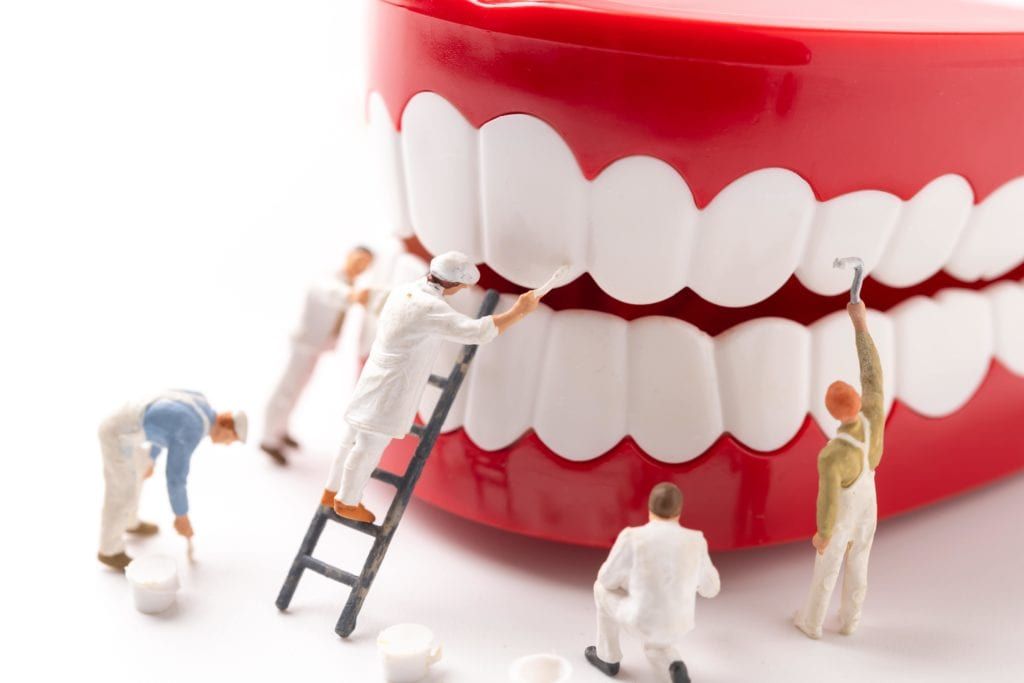If you have had dentures for awhile, you may notice that they don’t fit as well as they did when you first got them. In fact, you may notice them slipping frequently when eating or speaking. This can be frustrating, especially if your dentures once worked really well.

Over time, your dentures will become loose as the underlying bone structure changes. Although dentures replace missing teeth, they do not provide the same stimulation to the jawbone. This ultimately means that the underlying bone will slowly deteriorate and change shape. When the bone changes shape, the dentures will no longer fit as well as they once did.
Luckily, there is something you can do to fix loose dentures. A denture reline is a process used by dentists to alter the shape of dentures so that they fit the bone structure better. There are three different types of dental relines that may be recommended by your dentist: hard, soft, and temporary.
Hard Reline
With a hard reline, plastic from the inside of your denture is removed and replaced with a soft putty. The denture is then placed in your mouth, where a dental impression is made using the soft putty. This putty will then harden into a rubber-like material and a dental lab will replace it with acrylic. This effectively changes the shape of your denture and makes it fit more securely. In most cases, a hard reline is recommended for full dentures every two years.
Soft Reline
With a soft reline, a material softer than acrylic is used to reline the dentures. This material offers more flexibility than acrylic and can be a waxy or rubbery consistency. Soft relines are used for patients who have tender gums as a result of dentures. However, because soft relines use a softer material, they need to be performed every year or two.
Temporary Reline
With a soft reline, the inside of the denture is lined with a special medicated material used to alleviate gum inflammation. This will be worn for a few weeks and then the patient will return for a hard reline. Temporary relines are generally used for patients who have not had their dentures relined in awhile.
Is it time for a denture reline?
At this point, you may be wondering if it is time for you to have your dentures relined. While time is usually a good indicator of when to have your dentures relined, it is not the only indicator. Here are some other signs that you are due for a denture reline:

- Gum irritation
- Ulcers
- Fungal infections
- Tissue overgrowth
When dentures are first applied, they can cause irritation until your gums have adapted to them. After that, they shouldn’t cause much discomfort. Therefore, if you notice your dentures are not as comfortable as they once were, or if you notice gum irritation, it is likely time to have your dentures checked by your dentist.
Overall, a denture reline is an essential part of having dentures. As the underlying bone structure changes in shape, denture relines are essential to maintain your comfort and the denture’s function. When visiting your dentist, they may recommend one of the three types of denture relines in order to restore your comfort. After all, dentures are supposed to increase function, not impair it.


